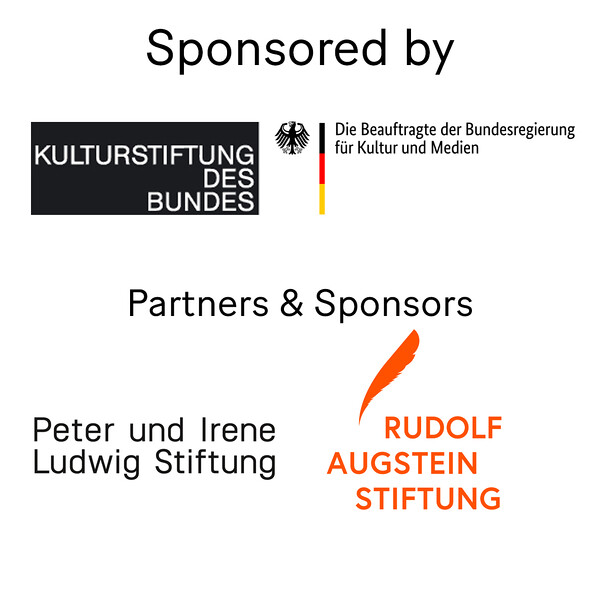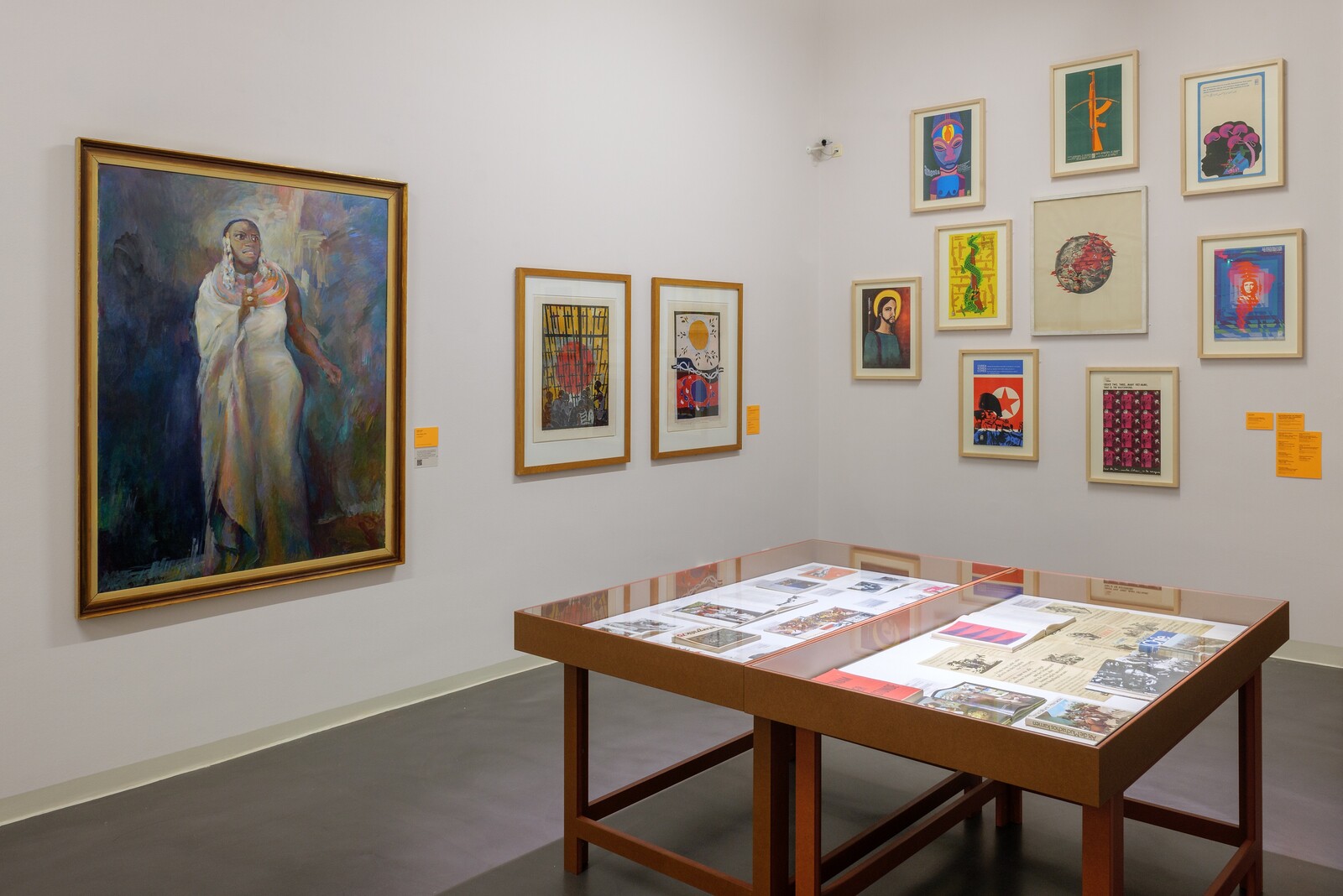Transcultural Art Histories in the GDR
April 13–September 4, 2022
The exhibition and research project Revolutionary Romances. Transcultural Art Histories in the GDR focuses on the cultural relationships between the GDR (German Democratic Republic) and the socialist-oriented countries and independence movements of the Global South in Asia, Africa, and Latin America between 1949 and 1990. A prologue exhibition and an international conference kicked off the multifaceted research project, which concludes with a large-scale exhibition at the Albertinum in fall 2023.
With the Cuban Revolution, the decolonization processes on the African continent, the demand of the Asian-African world for political and cultural self-determination at the Bandung Conference of 1955, and the growing number of national liberation movements, different models of socialism were on the rise worldwide. Turning towards the Global South in its cultural and political activities enabled the GDR not only to demonstrate state sovereignty and cosmopolitanism, but also to convey an attractive image of the GDR as the “better Germany” and thereby clearly differentiate the GDR from the FRG (Federal Republic of Germany). The multi-part research project Revolutionary Romances is the first time that these political and cultural relationships will be comprehensively addressed. Through historical artworks, contemporary interventions, conversation series, conferences, a digital screening program and a publication, Revolutionary Romances examines how the ideologically exaggerated leitmotifs of international friendship and solidarity not only legitimated the foreign policies of the GDR but also designed the role of art and culture in the GDR’s relationships with the Global South.
Departing from the Dresden State Art Collection’s own extensive holdings and collection history, previously overlooked interrelationships will be exhibited that question the familiar East-West axis of the Cold War. The project asks how such Revolutionary Romances appear in artistic practice. What were the contents, means, and channels of cultural exchange? What did the state see as the task of an art that was active and political on the international stage, and how might this differ from what cultural professionals experienced? How can the GDR’s demand for self-determination and human rights be reconciled with its repressive domestic politics or its call for state-imposed anti-racism with the actual living and working conditions of foreign contract workers or students in the GDR—and what are the repercussions for today?
On view until September 4, a “prologue” research exhibition undertakes a first approach to these broad topics. A small selection of paintings, graphic works, and films by artists from the GDR, Cuba, Chile, and Vietnam are on view. Interventions in different locations in the Albertinum by the artists Ângela Ferreira, Laura Horelli, Emeka Ogboh, and Sung Tieu question the past ideals and practices of international solidarity, and illuminate their historical as well as artistic meaning from the perspective of the present.
From June 9–11, Kerstin Schankweiler of the Technical University Dresden organized an international conference, in cooperation with SKD, entitled The Global GDR: A Transcultural Art History (1949–1990). Organized in three sections—Foreign Cultural Policy, Transcultural Aesthetics of Socialism, and Transnational Networks and Arts Institutions—the conference invited international scholars and artists to discuss the cultural-political framework of the exchanges, present examples of internationalist art production, report on architectural projects, and discuss transnational contacts between artists. The conference Revolutionary Romances: Into the Cold—Alternative Artistic Trajectories into (Post-)Communist Europe (co-organized with Julia Bailey), will take place on October 13.
Revolutionary Romances forms an essential part of the SKD’s Kontrapunkte program, which addresses aspects of the museum’s and the public’s treatment of art in the GDR and examines the difference between the ideological and aesthetic criteria of its evaluation and the possibilities for greater involvement of society in the production of knowledge in the museum. A program with contributions from international curators will take place on the digital platform voices from the summer of 2022 until the conclusion of the research project in late 2023.
Revolutionary Romances. Transcultural Art Histories in the GDR is an Albertinum project initiated and curated by Kathleen Reinhardt and Mathias Wagner.





